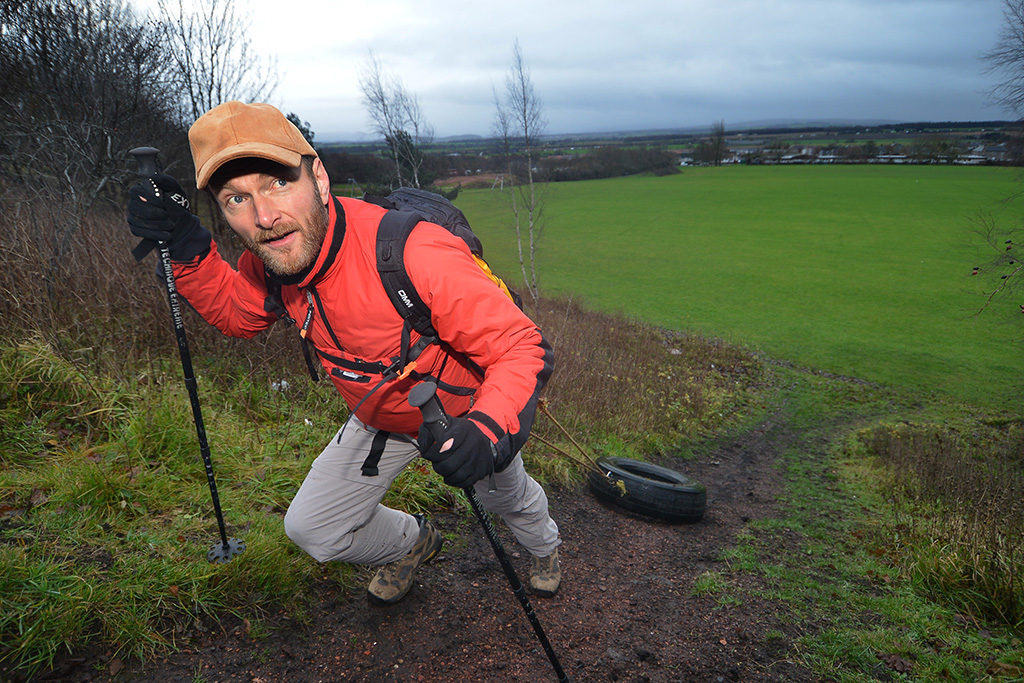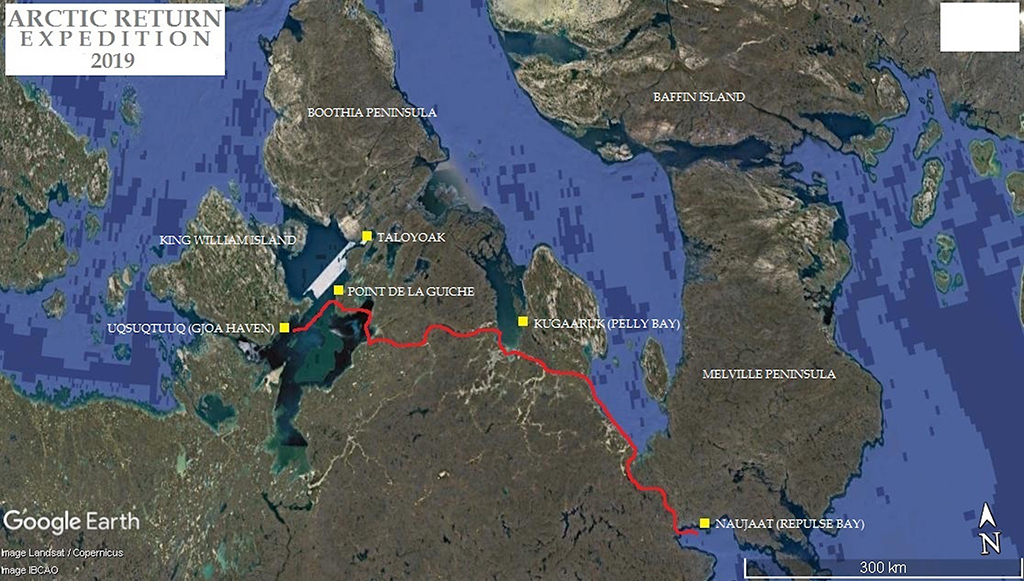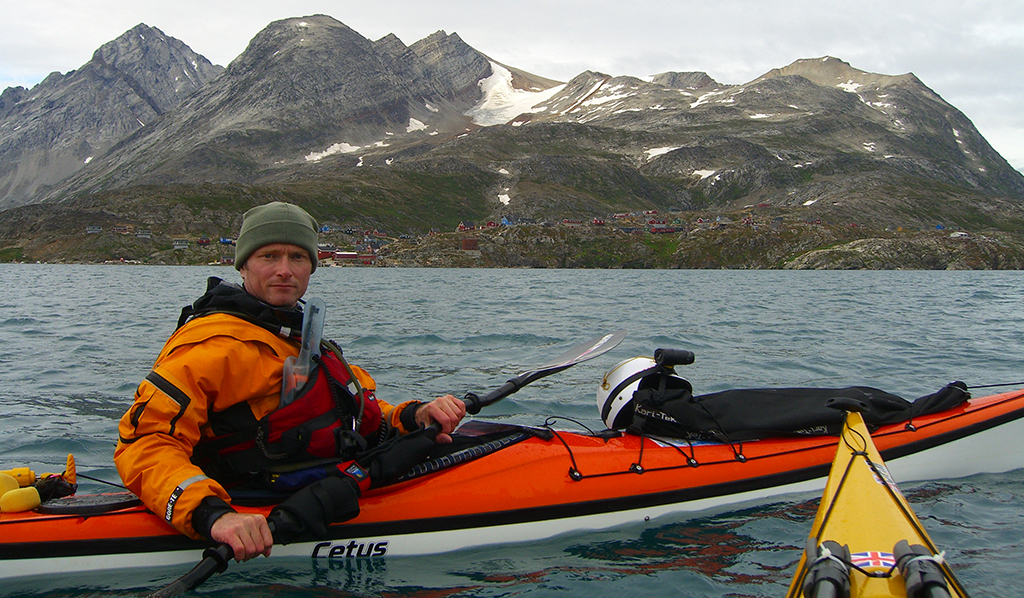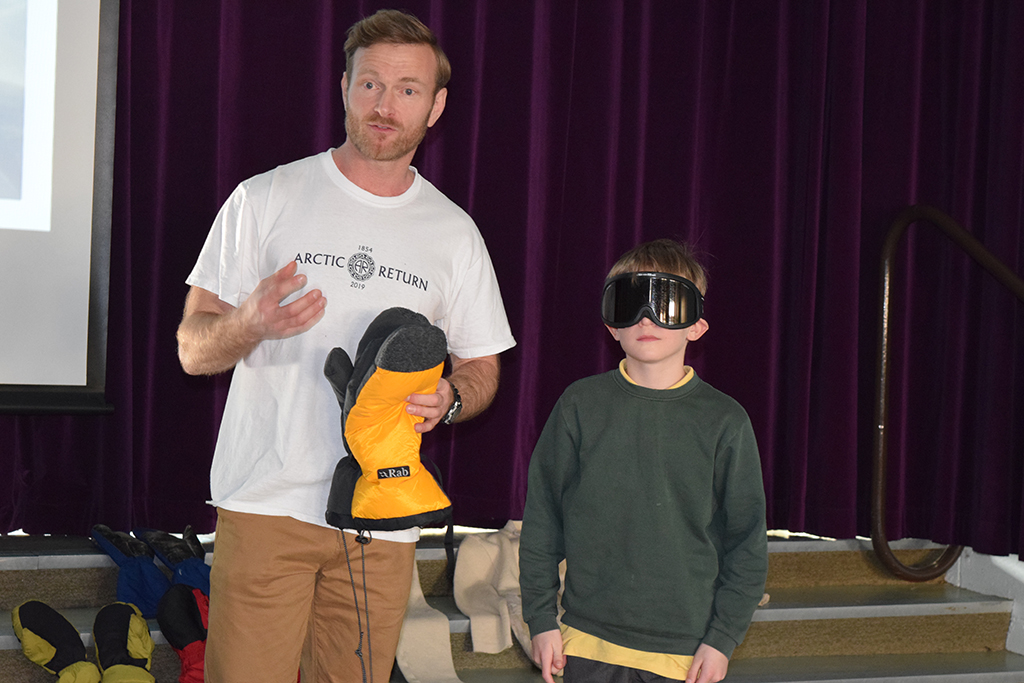
Arctic expedition to remember a Scots explorer
John Rae is one of Scotland’s greatest explorers – and the chances are, you’ve never heard of him.
But there are plans afoot to ensure that situation changes, thanks to a team of four volunteers who are heading off on an Arctic expedition next week.
West Lothian’s Richard Smith is part of the Arctic Return expedition, a four man team to Naujaat and embark upon on a 650-kilometre trek across Boothia Peninsula that will follow the route taken by Rae and his indigenous companions in the 19th century. Rae explored parts of northern Canada, and found the final portion of the Northwest Passage (Rae Strait).
Traveling on skis and snowshoes, the team will pay tribute to and honour one of the greatest Arctic explorers. Rae’s success was due in great part to his willingness to learn from the indigenous people of the region. He traveled with patience, humility, respect and honesty.
The Arctic Return team will follow that example. The expedition and team will bear witness to a land, a people and a history, and attempt to understand what it meant, 165 years ago, to enter into and travel through this white, dangerous and uncharted wilderness. They want to
Richard leaves the UK next Friday, 22 March and won’t return until mid to late May.
In his day job, he runs Motorhome Escapes in East Calder, a business which leases out luxury motor homes for visitors to Scotland, so they can tour the country.
But he’s going on a tour of his own – and there will be no motorhome to give him some luxuries on his expedition.
Richard said: ‘The idea came from the expedition leader, David Reid, and I was invited through an invitation from a fellow polar explorer.
‘I’ve been doing all my training hauling tyres around the canal network of West Lothian – I’ve had a few strange looks around Broxburn! People will see me going along, with tyres behind me, and that’s the best way to train for the trip.

Richard in training around the canals of West Lothian (Photo: Jon Savage)
‘I think I was first asked if I’d like to take part last October, so have been training since November.
‘I’ve been up to Greenland before, so have done some sled hauling, skiing and sea kayaking, so that’s all good to have done and know about, before going on the expedition.
‘In the UK, I have two kids and a business to manage, so this will be something totally different – there will be no emails, no phone calls, nothing, so I will be escaping from urban life and going back to a basic way of living.
‘But this isn’t just an expedition – it’s a project. It doesn’t just consist of the expedition, but there will be a follow-up documentary, as we try to raise awareness of the John Rae Society, for their endeavours to renovate his ancestral home on Orkney, the Hall of Clestrain.
‘So often, you hear about expeditions that want to be the first or the fastest to do something, but that’s not what we’re about. We just want to raise awareness of John Rae.’

The route Richard and his team will take
The Hall of Clestrain was Built in Orphir near Stromness, Orkney, in 1769, and is in urgent need of repair and restoration.
The expedition wants to help raise awareness of the society, to renovate the hall and transform it into a world-class interpretive centre, to not only honour Rae and his accomplishments, but celebrate Arctic exploration and the importance of indigenous knowledge in that endeavour.
The story of the expedition will be told by historian Ken McGoogan, to produce a book that will tell the story of the 2019 expedition and at the same time look back to 1854, whilst also being recorded on video.
Richard said: ‘I can’t wait to go away, and I’m just sorting out the last-minute things, recently, like making sure the business runs smoothly when I’m away!
‘I’m not nervous as such, as I’ve done some of it before. It’s pretty much a case of managed risks – we know what the weather should be like and how to cope with that. We’ve only got a minor risk of polar bears!
‘We’re flying out on March 22 and should be back on 10 May. In that time, we should be on the snow for 40 days, give or take, and we’ve got contingency for bad weather.
‘We’ll be doing 650km over the duration, pulling 90-100kg each. The temperature will be about -50, but we can expect between -30 and -50.’

Richard in a kayak on a previous expedition
Richard has been talking about his trip at schools in Broxburn, including St Nicholas Primary, where his own children attend.
He explained: “I’ve spoken at a couple of the schools, and they’ve been running a competition, to design a flag, which I will take with me to the Arctic – it’s running in three schools, in Broxburn, in Orkney and an Inuit school too.
‘We will take them and get some photos, then bring them back for the children to put on display in their schools.
‘When I went to my children’s school, I showed them the equipment I’ll be taking and let them try on my gear, and they were full of questions. Even a couple of weeks after I’d been in, I went to pick up my children and the others were coming up to ask more questions. It’s fantastic.’
For Richard, a big part of his work is to explain John Rae’s legacy in the 21st century.

Richard shows primary school pupils the equipment he will take on his expedition
Rae returned to Britain, with reports of a previous expedition by Sir John Franklin ending in cannibalism with the crews of his ships, dying of starvation, given to him by the Inuit. However, his reports were rubbished and he was discredited.
Richard concluded: ‘John Rae was awesome – he wasn’t just an accomplished Arctic explorer, but was a doctor too. He should be well-known, but he was vilified in Victorian society because he spoke about what he had seen and been told, People like Charles Dickens spoke out against him, and his reputation was damaged.’
To support the team and donate, visit https://www.justgiving.com/johnrae-society
TAGS

